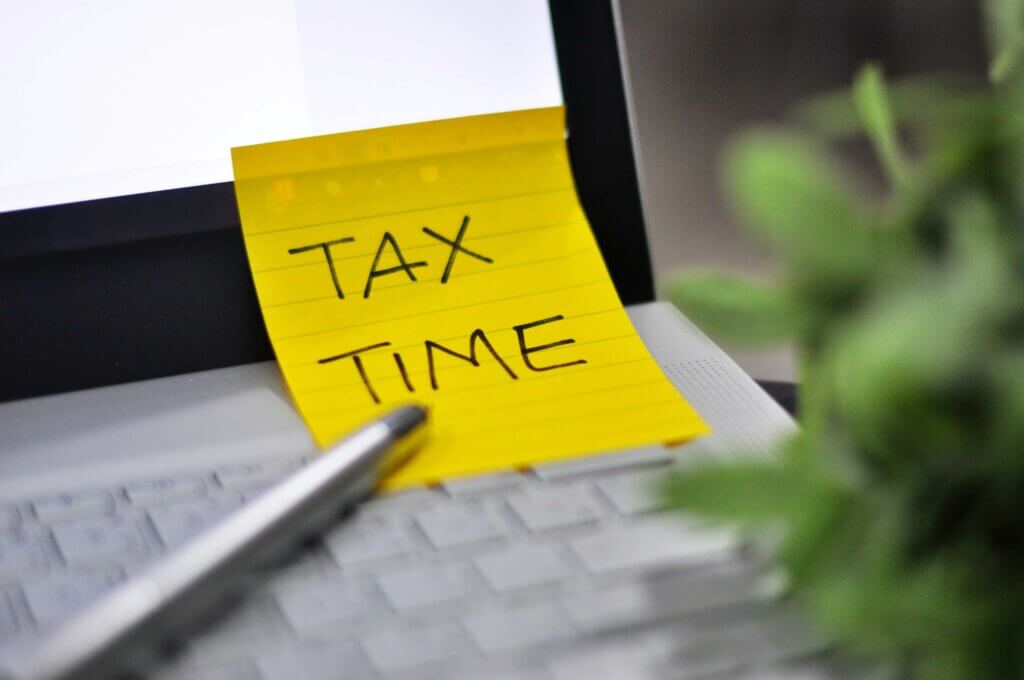You need a car. Should you buy it or lease it?
For most people, a car is their biggest expense besides their rent or mortgage. That makes the choice between leasing vs buying a car a big deal for your budget.
Whether you’re just starting your financial journey or working to rebuild your credit, choosing between leasing vs buying a car depends on how you drive, what you can afford, and how long you plan to drive it. We’ll break down the differences between buying vs leasing a car so you can feel confident when it comes time to make this important decision and stay on track with your financial goals.
Leasing a Car Defined
Think of leasing as renting a car for a few years, rather than just a couple of days.
Most car leases last around three years, but some may have terms that are longer or shorter. You make monthly payments to drive the vehicle, but you don’t own it when your lease term ends.
The process of how to lease a car is straightforward.
Generally, you make a smaller down payment compared to buying. In addition, your monthly lease payments are often lower than if you’d financed the same vehicle. At the end of your lease term, you return the car to the dealership.
Here’s what makes leasing different from renting a car for a weekend.
You’ll have mileage limits (usually 10,000 to 13,000 miles per year) and potential charges for any damage beyond normal use. Think big scratches, stains, or dents that go beyond everyday wear.
Most lease agreements also require you to keep up with regular maintenance like oil changes and tire rotations. You may face various fees to start your lease and return the car, as well as significant penalties if you need to end your lease early.
The appeal of leasing comes down to being able to drive the latest models with the newest features and lower upfront costs. Since you’re typically covered under the manufacturer’s warranty for repairs, you also won’t have to deal with surprise repair bills for most common issues.
However, it’s important to remember that you don’t own the car. When your lease ends, you’ll have nothing to show for all those monthly payments.
Buying a Car Defined
Buying a car means you’ll own it, either by paying for it outright or by financing it through a loan. Most people choose the latter: more than 80% of new cars were financed in 2024.
When it comes to how to buy a car, you basically have two options:
- Buy it new if you want the latest features, full warranty coverage, and that “new car” peace of mind. However, new cars come with higher costs and rapid depreciation, which means they lose value quickly in the first few years.
- Buy it used, which can potentially save you thousands of dollars. While you might not get the latest bells and whistles, you can often find a reliable car at a fraction of the price of a new one.
The trade-off is potential maintenance issues (like unexpected repairs that can cost hundreds or thousands of dollars) and limited warranty coverage, if any.
Here’s how to buy a car with financing.
You typically put some money down upfront—in 2024, the average down payment was around $6,900 for new cars and $4,200 for used cars—then make monthly payments for three to six years (the most common loan terms) until you pay off the loan.
The better your credit score, the lower your monthly payments will probably be.
The biggest advantage of buying a car is ownership. Once you finish paying off the loan, the car is yours to keep, sell, or trade. No more monthly payments, and you’re free to drive as much as you want.
Pros and Cons of Leasing a Car
Leasing a car can be appealing, especially if you like to upgrade to the latest model every few years. But it comes with trade-offs.
The Pros
Lower monthly payments are often the biggest draw.
With leasing, you only pay the amount the car declines in value during the time you drive it. That’s why lease payments on a new car are around $140 less per month than a loan payment for the same vehicle.
And every few years, you can trade up for improved fuel efficiency, better safety ratings, and the latest tech.
You have fewer repair worries with leasing, too.
Most lease terms fall within the manufacturer’s warranty period. That means if something breaks that’s covered under warranty, you’re typically not paying out of pocket for major repairs.
Leasing also means you’re not stuck with the same old car that’s losing value year after year. When your lease ends, you can walk away and choose a different vehicle that fits your current needs.
If you love it, you also have the option to buy the car at the end of your lease. Be careful, though.
You’ll need to consider several factors, including the car’s residual value (how much it’s worth at the end of your lease), its mileage and current condition, whether you can afford to buy the car outright or if you’ll need to take a loan and make payments, and if those payments fit your budget.
The Cons
You don’t get to own the car. The dealer gets it back when your lease ends, and all those monthly payments you made were simply for the pleasure of driving the car for a few years.
Mileage restrictions can be limiting if you have a long commute or enjoy road trips. Most leases allow you to drive 10,000-13,000 miles per year, and exceeding these limits can result in costly overage fees (typically 15-30 cents per extra mile).
Wear and tear charges can also be an unwelcome surprise. While everyday use is expected, anything worse than minor scuffs and normal interior wear can cost you extra money when you return the car at the end of the lease.
Car leases can be difficult to get out of early if your circumstances change. Breaking a lease often involves steep penalties that may end up costing you thousands of dollars.
You typically need strong credit to get the best lease deals. If you’re rebuilding your credit, you might not qualify for advertised lease rates.
Strict insurance requirements mean you’ll need to carry at least full comprehensive and collision coverage throughout your lease, per dealer requirements. Leasing companies may also require higher liability limits, which can increase your insurance rates.
You may also need a separate gap insurance policy, which covers a leased vehicle if it’s stolen or destroyed.
It’s important to consider these restrictions and potential costs before deciding between leasing vs buying a car.
Pros and Cons of Buying a Car
Buying means you’ll actually own the car. If you like to keep your cars long term, buying may be the best choice.
The Pros
You’ll own the car, whether you pay cash upfront or finance it over time. Unlike leasing, you’ll have something of value that you can eventually sell or trade if you want to.
No mileage limits mean you can drive as much as you want without worrying about overage fees. Road trips, long commutes, rideshare driving, or food delivery are all fair game.
The freedom to sell or trade gives you flexibility. If your financial situation changes or you need a different vehicle, you can sell your car and use the money toward something else.
If you finance, payments eventually end. Once you pay off your loan, you own the car outright and can drive it without monthly payments for as long as you want.
Buying used can save you thousands of dollars, making it easier to afford a car when money’s tight. Used cars also typically cost less to insure than new ones.
The Cons
Higher monthly payments for new vehicles can strain your budget, especially when you’re just getting your finances in order or rebuilding after a setback. Plus, if you need to borrow money, you’re signing up to be in debt for several years.
Larger upfront costs include the down payment, taxes, registration fees, and other expenses that can add thousands of dollars to the car’s sticker price.
New cars lose value fast—about 20% depreciation in the first year alone. This creates a common problem: you could end up owing more on your car loan than the car is actually worth.
Here’s why. When you buy a car with little money down, you’re borrowing almost the full purchase price. But while you’re making monthly payments (mostly going toward interest at first), the car’s value is dropping quickly.
If you need to sell or trade in your car during those first few years, you could find yourself in a bind. You’d have to pay extra money out of pocket just to get rid of the car, even after selling it, because you still owe more than it’s worth.
The responsibility of maintaining the car falls on you once the manufacturer’s warranty expires. You’ll need to budget for ongoing maintenance, repairs, and potential major fixes as the vehicle ages.
With used cars, you might face these costs sooner, especially if they’re already out of warranty.
You have to drive the same vehicle for years. Unlike leasing, you won’t get to upgrade to the latest models and features every few years.
Buying requires a bigger commitment than leasing, so it’s worth considering both the pros and cons of buying a car before deciding if it’s right for you.
5 Questions To Help You Decide What’s Right
Deciding between leasing vs buying a car comes down to understanding your situation.
Here are key questions to guide your decision:
How Far Do You Drive Each Year?
High-mileage drivers should seriously consider buying instead of leasing. Lease mileage overages can cost hundreds or thousands of dollars. Buying gives you unlimited mileage freedom.
Think about your daily commute, weekend trips, and any driving you do for work. Add it all up to get a realistic picture of your annual mileage. If you drive more than 13,000 miles a year (generally the maximum unless you opt for a high-mileage lease, which costs more), buying may be a better move.
How’s Your Credit Score?
Leasing typically requires good credit to qualify for the best rates.
A credit score of at least 700 will get you the most favorable lease terms, though some people with scores in the 600s can still get approved with higher monthly payments or by putting more money down.
If you’re rebuilding your credit, you might find better financing options through used car loans or credit union auto loans.
Check your credit score before you start car shopping. That way, you’ll know in advance what financing options are available to you and what interest rates you can expect.
Do You Have Money for a Down Payment?
While leasing often requires a smaller upfront payment, buying a car gives you more options.
Some lenders offer little to no money down deals, especially for used cars or buyers with good credit. Keep in mind that you may have to make higher monthly payments in exchange for a smaller down payment.
Consider how much you can comfortably put down without depleting your emergency fund or delaying other savings goals.
Do You Want To Upgrade Often or Keep Your Car Long Term?
If you want to get behind the wheel of a new car every few years, leasing makes sense.
But if you plan to keep your vehicle for many years and you don’t want to be stuck with a car payment forever, buying may provide better long-term value.
If upgrading to the latest models and newest tech is important to you (i.e., you jump on the newest iPhone as soon as it comes out every year), leasing may be your best bet, as long as you can reasonably afford it.
What Do Your Finances Look Like?
Consider your complete financial picture.
While lower monthly lease payments might be attractive, buying a reliable used car could actually free up money for other goals. Since used cars generally cost less and you can pay them off sooner, you’ll have more cash available for building an emergency fund or paying down debt, for example.
Look at your monthly budget and consider how a car payment fits with your other financial priorities.
Making Your Decision Work for You
The “right” choice between leasing vs buying a car isn’t the same for everyone.
Your driving habits, credit situation, budget, and personal preferences all play a role in the buying vs leasing a car decision.
Both leasing and buying can be smart options.
The key is understanding the true costs of each choice and picking the one that makes sense for your current situation and supports your broader financial goals.
When you’re ready to buy or lease a car, it’s important to take your time, ask questions, and choose the option that moves you forward financially rather than holding you back.
Making informed decisions about major purchases (like a car) is an important step in growing your financial confidence and stability.
Tools like the ones we offer at Kudzu can help you track your car-related spending, automatically save for a down payment, and learn how leasing vs buying a car fits into your overall financial plan.
Get started today. Download the Kudzu app and learn how to make every dollar work harder toward your next car lease or purchase and all your other financial goals, too.



